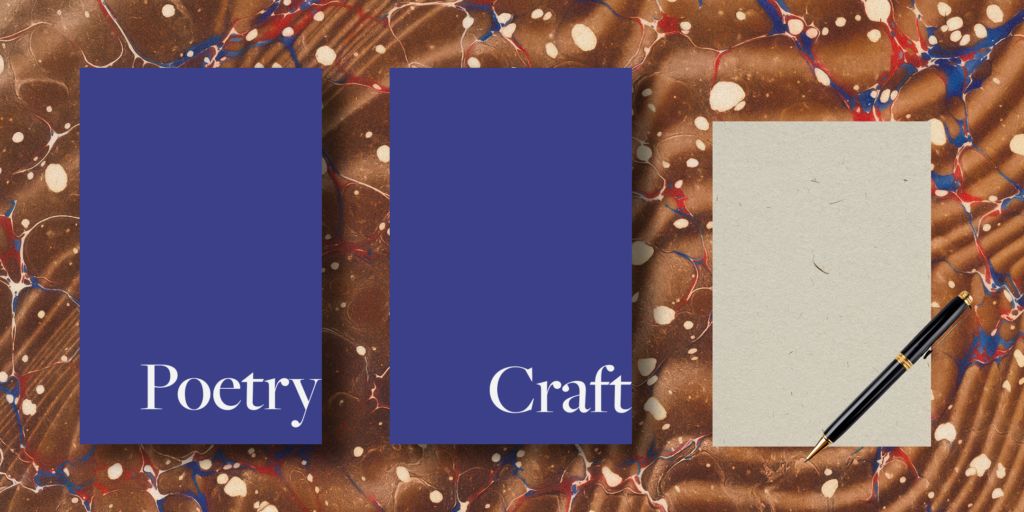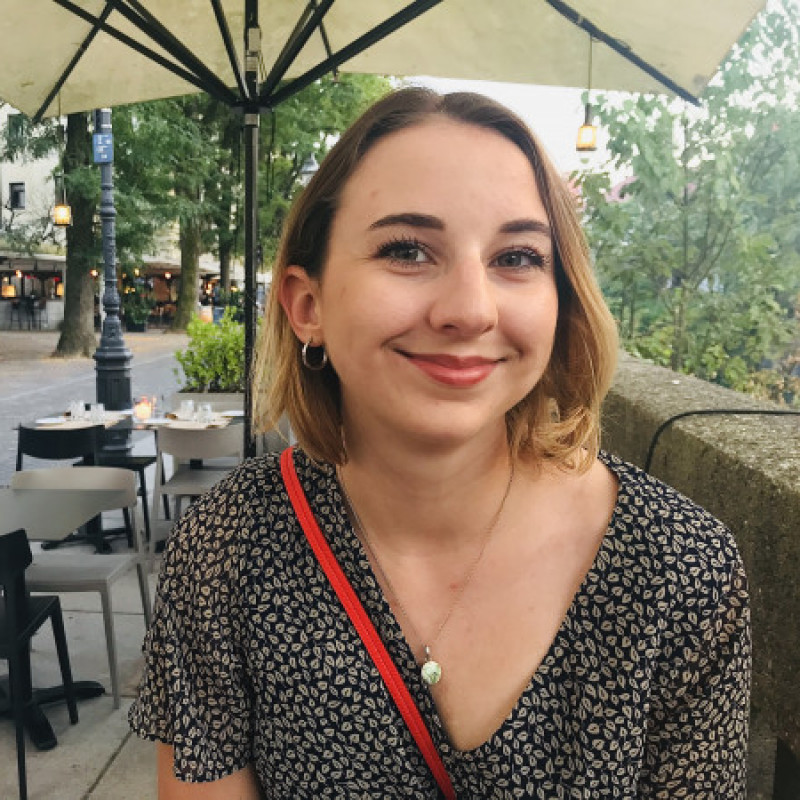As part of our Poetry Craft series, Ruth Beddow discusses class, work and the politics of poetry today.

Before we talk about whose poetry gets published, promoted or awarded, we need to ask: who gets to write in the first place?
A myth of ‘working-class writing’?
In recent years, we’ve seen Joelle Taylor (raised in working-class Lancashire) win the T.S. Eliot Prize, and Caleb Femi (whose debut collection explores life on the North Peckham Estate) win the Forward Prize. Many publishing houses now offer low-income bursaries for course fees that can easily exceed a month’s rent. And there are so many grassroots events in London and across the country, that once you’ve found the courage to show up, you’re sure to find a space that fits.
Despite positive strides forward, there’s still plenty of talk about needing ‘more working-class voices’ in poetry. Perhaps the invitation will be enough to summon a proletarian chorus and absolve us of our bourgeois guilt? Perhaps there are editors out there, waiting for the next harrowing exposé of urban hardship, or a sombre portrait of post-industrial, Reform-voting Britain? These tropes feel tired, homogenous, and leave little room for joy and imagination on the spectrum of working-class experience.
But ultimately, philosophising about what ‘working-class writing’ looks like, and whether we see enough of it, obstructs a much more pragmatic and useful conversation about the barriers class, income and socio-economic status pose to writing itself. Not only for working-class individuals, but anyone juggling full-time jobs, shift work, unstable incomes, and caring and domestic responsibilities, without the luxuries of time or money to devote to poetry.
‘There’s no money in poetry’
For a long time, I’ve wondered what’s behind the biographies and event introductions of poets who’ve ‘made it’ (i.e. begun profiting from their writing). Invariably, they’re some combination of poet/author/playwright/artist – and yet are living, as I do, in one of the most expensive cities in the world.
It feels uncouth to ask: how? How did you afford that life-changing residency? How did you find time to write your collection? How did you budget for competition entries? Do you work part-time? Do you have a cleaner? Do you live with your parents? Does your partner pay the bills? But I fear until we ask (and answer) these questions, the myth of what makes ‘a poet’ will persist – and we won’t help talented people put pen to paper.
On a personal level, once I stopped being so hard on myself for ‘not keeping up’ and realised the bottom line – that poetry is not lucrative, that we are largely selling books to ourselves, and that many of us are trying our best to squeeze an unprofitable artform into life under capitalism – I felt, ironically, a lot freer.
Shifting identities
Apparently, millennials are more likely than the previous generation to identify as working class. Perhaps this is indicative of the economic climate we’ve grown up in, or perhaps we seek an identifiable marker of disadvantage to explain the overwhelm of modern life.
Like a lot of my peers, my class background and socio-economic status are different. I grew up and went to state school on the outskirts of Birmingham, in a working-class neighbourhood built to serve the motor industry. There is an ominous but somewhat poetic sign where the factories used to be that says ‘you were ruled by the track’.
Looking back, it’s true that the notion of ‘hard work’ – of exhaustion and resilience – defined so much of my family and community identity. I remember being told that my writing was nice, and being encouraged to enter the odd competition, but never once considered ‘being a writer’ as an option in life. It sounded far too easy to be work.
Imposter syndrome
Even when I moved to London to study English Literature (in the final years of bursaries and grants!) my imposter syndrome followed me. There were so many words I didn’t know. I couldn’t speak in classical or philosophical references. I was rejected from my university journal every time I submitted. So I steered away from modules in creative writing and kept my scribbles to myself.
This seems to be a common experience among poetry friends. I don’t think it’s helped by the way poetry is taught in schools (archaic, unintelligible, unrelatable), or by the way some contemporary poets seem to guard it (obscure, exclusive, esoteric).
It wasn’t until I started working full-time that I returned to poetry, via a free introduction to The Poetry School with Ella Frears. I was terrified when I showed up, but Ella created a very inclusive atmosphere. She prompted us to write a six-line poem starting with an explosion. I wrote a fictionalised account of my childhood home burning down and my mother, in true resilient fashion, simply starting over:
An Opportune Disaster
Last Friday, the stove blew up
and our home came to the ground.
Blackened plates, blackened telephone,
blackened stew (nothing new).
Mother moaned merrily
as the brambles swarmed, ashes danced,
and the Earth took back our house –
an opportune disaster.
Since then, I’ve been able to access The Poetry School’s courses with an under-30 discount, carving out space in my budget when I can. But even now – with a pamphlet published, anthology edited, and workshops running for several years – I still feel uneasy about entering ‘literary spaces’. I almost had a panic attack at this year’s Free Verse Book Fair, when someone asked what I ‘write about’. If I could answer again, perhaps I’d say ‘resilience’.
‘But there’s no poetry in money, either’
I wrote my first pamphlet during the pandemic when I was ‘working from home’ in a job that was all but redundant, since it mainly involved making tea and coffee for men in suits who were now, like the rest of us, in pyjamas. There was so much time to fill, and the pamphlet became a vacuum for all my frustrations, fears and loneliness.
Since then, my public sector day jobs have become more mentally demanding, albeit better paid, and I’ve struggled to find the bandwidth for writing. I’m not one of those admirable people who carves out an hour every morning at 6am. I find it very challenging to switch into ‘creative mode’ and write uninhibited, purging my subconscious. And so, I always have to laugh when someone comes up to me after a workshop and says ‘are you a full-time poet?’ Me? Having run up and down escalators to be there on time, clutching materials I made the night before, with a mountain of unfinished poems taunting me across disorganised Google Docs?
A way around this inner tension that I’ve been exploring is to write more ABOUT work, in all its forms: paid, domestic, physical, mental. I had a particularly bad experience in my last job, and for a while, stopped writing altogether. But looking back at fragments from that period with fresh eyes, some interesting and surreal work is taking shape.
So, what now?
After waxing lyrical about being pragmatic, with both my poet and public servant hats on, I’ll make a few suggestions:
- We should foster a more open and inclusive dialogue about how poets make money, balance work and writing, manage time, and access resources.
- Publications should call for more poetry about work, in all its many forms. They may be surprised by what it throws up.
- Larger, funded institutions should aim to pool information on paid submission opportunities, competitions and free/low-cost events in one place. This should be easy to navigate and jargon-free.
- Funders should invest in presses that champion emerging working-class and lower-income writers. They could also explore offering ‘living loans’ to enable part-time working or short career breaks.
- Cultural venues and libraries could host ‘working writers’ collectives, inviting people with different day jobs to share experiences and build a network.
- We should normalise being more than one thing. And most of all, be kind to ourselves.

Ruth Beddow is a poet, facilitator and civil servant based in London. She is the author of The Thought Sits with Me (Nine Pens, 2022) and editor of Slow Progress (Morocco Bound, 2024), an interactive, illustrated anthology of poetry produced at the workshops she has been running since 2022. Ruth’s writing regularly explores the intersection between place and identity, with hints of the surreal. Her focus as a tutor is on making the poetry community more open and accessible, particularly to those juggling creative pursuits with work in all its forms. In recent years, Ruth has been shortlisted for the New Poet’s, Plough, Prole and Teignmouth prizes, and featured in publications such as Wild Court, Write Out Loud, Victorina Press, The Passionfruit Review and Ink, Sweat and Tears.
Add your Reply
You must be logged in to post a comment.